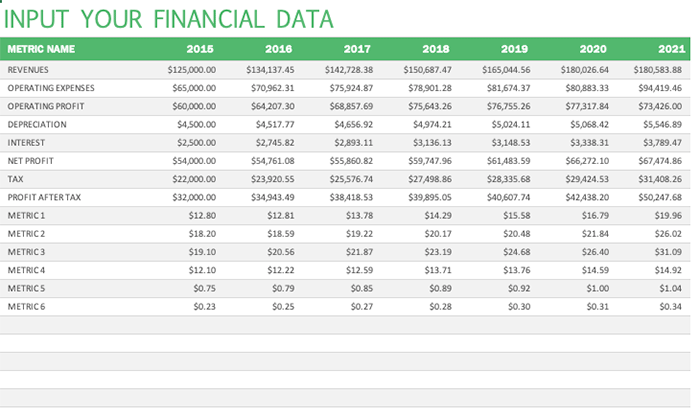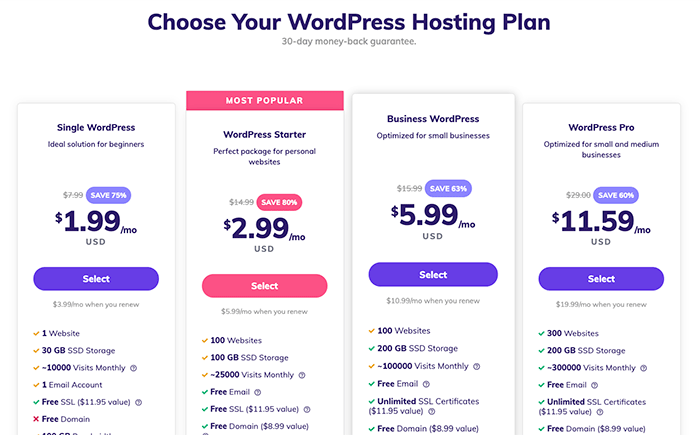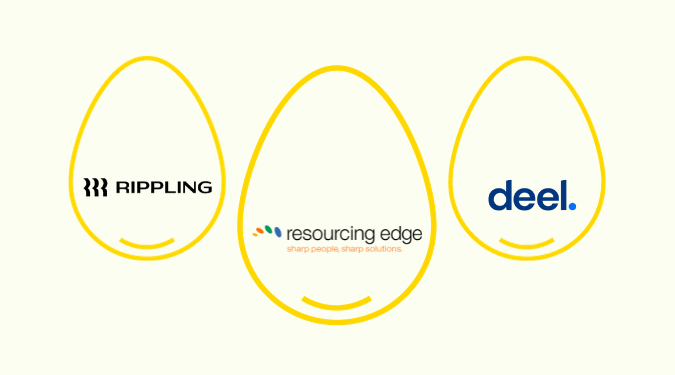The top challenge for small business owners is cash flow and the cost of running the business is the second biggest challenge. To put it bluntly, startups need money. No amount of passion, persistence, or patience will make up for a lack of capital.
Most aspiring business owners are short on time, so it’s tempting to run through the least interesting parts of planning at a sprint. Even the word “budget” can trigger boredom and frustration for some. But startup costs are the biggest financial risk to account for when launching a new business.
Planning for business startup costs is about taking control. It’s how any organization can ensure that they remain in control as the business takes on a life of its own.
Why business startup costs are so important
Startup costs are what a business spends before the business starts running. These costs are more than an initial investment in a new business. They’re a way to attract investors, secure loans, and estimate the future health of any organization.
38% of startups fail because they run out of capital. Some businesses start fast and hope that their popularity will cover a lack of planning. Without a clear plan for funding, most are likely to fail.
Financial planning is the first step to a successful long-running business. The first step to creating a financial plan is to outline the set-up costs.
Start With the Basics
Most businesses are either brick-and-mortar or online businesses, and most small businesses sell services. The type of business can determine the typical business startup costs. Some common costs include:
- Office Space
- Equipment and supplies
- Utilities
- Licenses and permits
- Insurance
- Marketing
- Website build
- Staffing or contract help
Once you have a clear list of anticipated expenses, do some research and estimate the cost of each item. Start with the most expensive items on the list.
As you research the average cost for these items, put some time into researching potential savings. Then, think about what these savings could cost in terms of time and effort.
Separate out recurring expenses from one-time expenses, and weigh the value of each decision by its long-term value to the business. Ideally, your initial budget will cover the first five years of the business. Get into the details at this stage and come up with best and worst-case scenarios for your business startup costs.
Embarking on a new business venture is kind of like moving or planning a wedding. There are always major surprise costs that you can’t plan for.
Unexpected costs will always happen and your initial research can help determine how much to set aside for common surprises in your niche or industry.
Make the Math Work
The math and principles involved in calculating costs and budgeting can seem intimidating after a day of too much research online, but the goal is simple. What comes in needs to meet or exceed what goes out.
This kind of math is difficult to do in your head, but it’s easy to organize in a simple spreadsheet.

As you make estimates, it may be a good idea to double or triple variable line items like paid advertising or legal services. If you plan to take out a small business loan, be sure to include the cost of these loan payments in your startup costs.
If your outline of business cost exceeds your income projections, review your projected costs in the order of priority. Next, you’ll want to consider how each cost impacts the bottom line and future opportunities. Make decisions early about how to reduce costs or save certain costs for a later date.
Quick Tips To Improve Startup Costs Today
Business startup costs are more than what the business has to spend, they’re a way of shaping the future of the business. For example, selling an ecology-minded product is more than the product and how it’s produced. It’s a philosophy that impacts the whole of business operations. These ideas trickle down to the decisions the team makes about spending.
These are some quick tips to ensure that your organization’s budget will cover everything your team needs.
Plan for Professional Help
Research, organization, and planning skills are essential to running a successful business. If these aren’t your strongest skill sets, consider taking some courses online and invest effort in improving those skills. It’s also essential to recognize that there are areas where it may be better to outsource.
Many startups plan to figure things out on their own or to grab legal or financial advice for free to save money. But it’s essential to plan ahead and to prepare for the initial costs that can help your team solve the most challenging problems you will face.
What if you make a mistake on your taxes and have to accomodate an audit at the last minute? What if a customer slips in the parking lot on your property on opening day?
Small businesses are full of surprises. Setting a budget aside for legal, accounting, and leadership can help build a stronger foundation for your startup.
Invest in the Right People
Because salaries vary by job and location, you might plan to budget for employee costs after addressing fixed costs like rent and insurance. But, if an employee position is fundamental to the business’s future success, it’s better to budget the ideal salary first.
Spend time researching other ways to save on business startup costs that will have less business impact.
Some ventures are DIY visions that can fly solo, but many great business ideas require a team. People power is the most valuable and expensive item on the list of business startup costs, whether the plan is to bring together a unique group of freelancers for a set period of time or to build an in-house team.
If you’re starting lean, it’s a good idea to outsource talent, then hire permanently when you have the budget to build. Don’t forget to include the investment it will take to bring on the right people.

These resources right here on Crazy Egg can help you get started:
Figure Out Your CAC
Marketing can seem like an extra when viewed alongside hardware and other fixed startup costs. But within the first few months, your team will start obsessing about another kind of cost—customer acquisition cost (CAC).
CAC is how much the business spends for each new lead.If you develop a comprehensive marketing plan before launch, it is much easier to estimate your CAC and the related business costs.
For example, your team might be planning to send a weekly newsletter. The cost for that marketing channel will include a marketing automation platform that averages $150 per month.
There are also other line items that will increase this budget including:
- Stock photography
- A freelance illustrator
- Freelance writers
You’ll also want to budget for the employee time it may take to connect the email marketing platform to other platforms for website analytics and other business necessities. These extra costs can seem like an insignificant future investment, but always include them in the initial planning.
Don’t Forget About Taxes
Business taxes can be confusing. Start by planning to set aside the current corporate tax rate if you operate your business in the United States.
You’ll also want to budget for a certified public accountant. This can help your team learn early on about what you can and cannot deduct to save money.
Long-Term Strategies for Your Startup Budget
Plan your business startup costs from the perspective of a business that’s been in operation for a year. Working backwards in this way will make your first few months as a new business more successful.
If you’re not able to find answers to questions about business operations in your specific niche or industry, head to an online forum or join a mentoring program. This perspective of preparedness will pay off in the long run.
The ideas below are a few other ways that your team can prepare and succeed.
It’s All About the Business Plan
Any solid business plan includes financial details, and it’s a good idea to dig into startup cost research as you create your business plan. Information discovered during the earliest stages of planning can help create a solid and realistic early budget.
It can also help your team make crucial business decisions that will impact revenue down the line. For example, if the average rent in your area is more than 20% of your anticipated monthly profit, it’s worth considering a remote business.
That’s not to say that a healthy startup budget isn’t necessary for starting an online business. Ecommerce seems like a wildly inexpensive option, but the many small costs of starting a website, enabling an online shopping cart, and installing useful business apps can quickly add up.
Get Into the Details Early
It can also be tempting to make quick uninformed guesses about the software and services a business will spend on during set-up. Skimping on research can lead to massive costs later when the initial investment projections don’t line up with that early guesswork.
We’ll show you what this could mean with a few quick examples.
First, there are many different options for ecommerce website builders. Each offers unique themes and features for different types of business, and these details can make a dramatic difference in the monthly cost for these services.
Or, maybe the plan is to build a website. Choosing the least expensive WordPress hosting could mean a lack of security that impacts business operations later on.

It’s also important to keep an eye out for introductory rates or trial offers. Complete this detailed research with an understanding of how recurring costs can vary over time.
Give Yourself Time
You may want to knock out your business startup cost estimates in a few hours, but think about this piece of your financial plan as a long-term investment. Take the time to research each line item as though it is the only thing on your list.
For each expenditure, follow a simple step-by-step process.
First, write out questions about each line item. These are some sample questions to consider for business rentals:
- How much will the rent increase each year?
- What’s included in the lease?
- Is the location safe?
- Does the space meet any technology needs?
- Who handles repairs?
- Do you need to pay for parking?
List the pros and cons of different options and compare multiple sites and features. This will help ensure that each estimate is a comprehensive guess that will build on the foundation of your business.
Then, rinse and repeat for each item on your list.
Prepare to Grow the Business
Some business owners are just hoping to get their venture off the ground, but most successful owners begin their process with dreams of growth.
Whether you’re putting a quick Slideshare together for an internal team or a polished presentation to woo new lenders or investors, a formal financial plan is a smart way to organize your early costs.
This document can also help to draw clear connections between anticipated costs and projected revenue.
Your financial prospectus should outline:
- Detailed startup costs
- Your business model
- Sources of revenue
- Growth forecasts
These details will show any lender or investor that your team has done everything they can to develop a viable business with powerful potential. This will inspire the investment the business will need to expand.
If you’re not ready to project five years into the future with your financial plan, prepare to project a minimum of six months. It will usually take 18-24 months for your company to turn a profit.
Next Steps
Most home-based startups begin with less than $5,000 in capital. This guide, How to Start a Business for Less Than $100 is full of great tips for founders with big ideas and small budgets.
Another option is to learn about the best small business loans and start applying.















